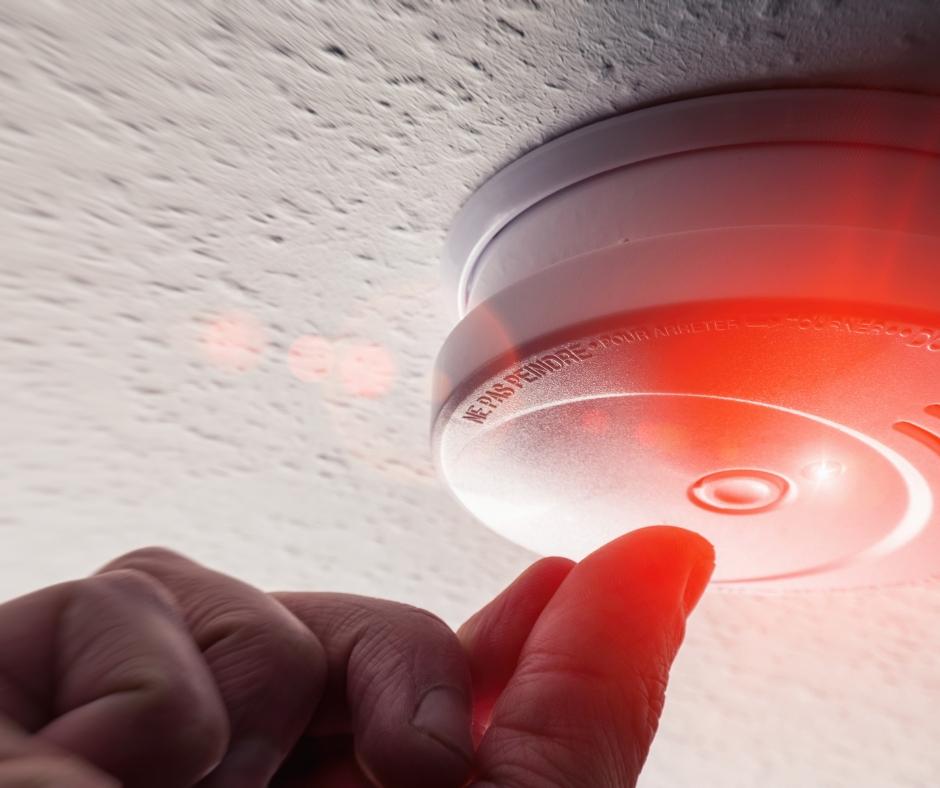Fire Safety
We have included tips to help keep you and your home fire safe here - our safety leaflet also has useful advice. Please read it today.
We have included tips to help keep you and your home fire safe here - our safety leaflet also has useful advice. Please read it today.
We have fitted smoke alarms in your home to help detect fires before they become dangerous. Remember to test your smoke alarm at least once a week - we have included a guide on how to do this below. If it is not working, make sure you test the batteries before contacting the Association.

A free home fire safety visit is quick and easy to arrange. It only takes around 20 minutes to carry out – but it could save your life.
You'll get tips and advice on how to keep you safe in your home and avoid a fire breaking out – and what to do if it does.
A team from Scottish Fire and Rescue Service will pop out at a time which suits you and answer any questions you have about fire safety. Find out more at home fire safety visit.
How do I book a free home fire safety visit?
To book your free visit:
Smoke alarms are a key part of a home fire escape plan. When there is a fire, smoke spreads fast. Working smoke alarms give you early warning so you can react quickly.
It is important you make sure you have working smoke alarm(s) in your home. You can stay in control of this by carrying out a regular test, perhaps on the same day each week to make it easy to remember. If you live with others, remember and let them know you are testing the alarm(s) so they don't panic.
How to test your alarm
If the detector is working, the alarm will sound, along with any other alarms in your property that are linked to it.
To do this press and hold the test button on the smoke detector. It can take a few seconds to begin and you will hear a loud siren from the detector while the button is pressed.
Cleaning your alarm
Another helpful tip is to clean the detector(s). When you are testing the detector each month, it’s a good idea to use a vacuum cleaner attachment, a cleaning brush, or a soft cloth to clean any dust, dirt, or debris that may have gathered.
Avoid using cleaners on the unit as these may contaminate the sensors. Vacuuming or wiping away dust should be enough.
Follow these additional tips in mind to keep you and your home fire safe:
Cooking is the biggest cause of house fires in Scotland. If you’re tired, have been drinking, or taking drugs, you will be less alert to the signs of fire.
The Scottish Fire and Rescue Service have tips and advice to help keep you and your home safe when cooking as well as kitchen safety.
E-Scooters/E-Bikes and Lithium-ion batteries
E-scooters, e-bikes and mobility scooters can be useful tools for many people. The main fire risk is the lithium-ion (Li-ion) battery used to charge these appliances. These types of batteries are found in mobility scooters, mobile phones, powerpacks, laptops, children’s toys, power tools and e-cigarettes.
Follow these key tips to minimise the risk of fire:
What to do in the event of a lithium-ion battery fire
In the event of a fire do not attempt to tackle it yourself. Get out, stay out, and call 999. Remember, disposing of a lithium batteries must be done at a Household Waste Recycling Centre (HWRC).
More information can be found at http://www.batteryfiresafety.co.uk or www.electricalsafetyfirst.org.uk
Candles and tea-lights can create a relaxing or special atmosphere in the home, used by people of all ages. They are also part of many religious and cultural celebrations - but are also a major cause of fires.
Keep safe by following these tips:
Never leave candles unattended. Always put them out when you leave the room, go to bed, or leave the house.
